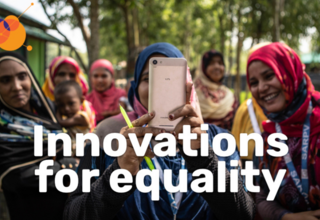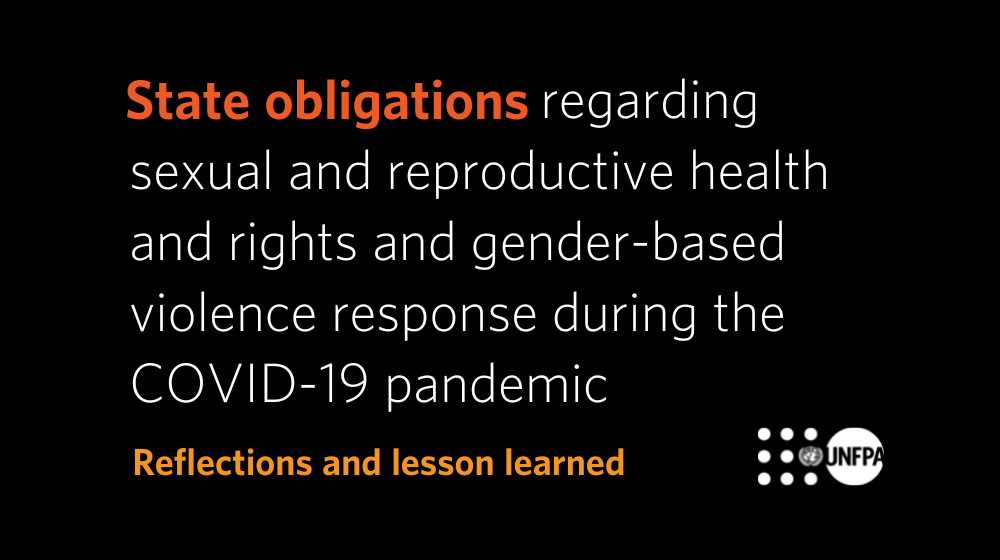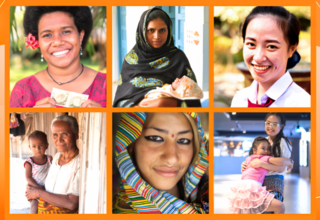You are here
A life-saving sisterhood in Indonesia
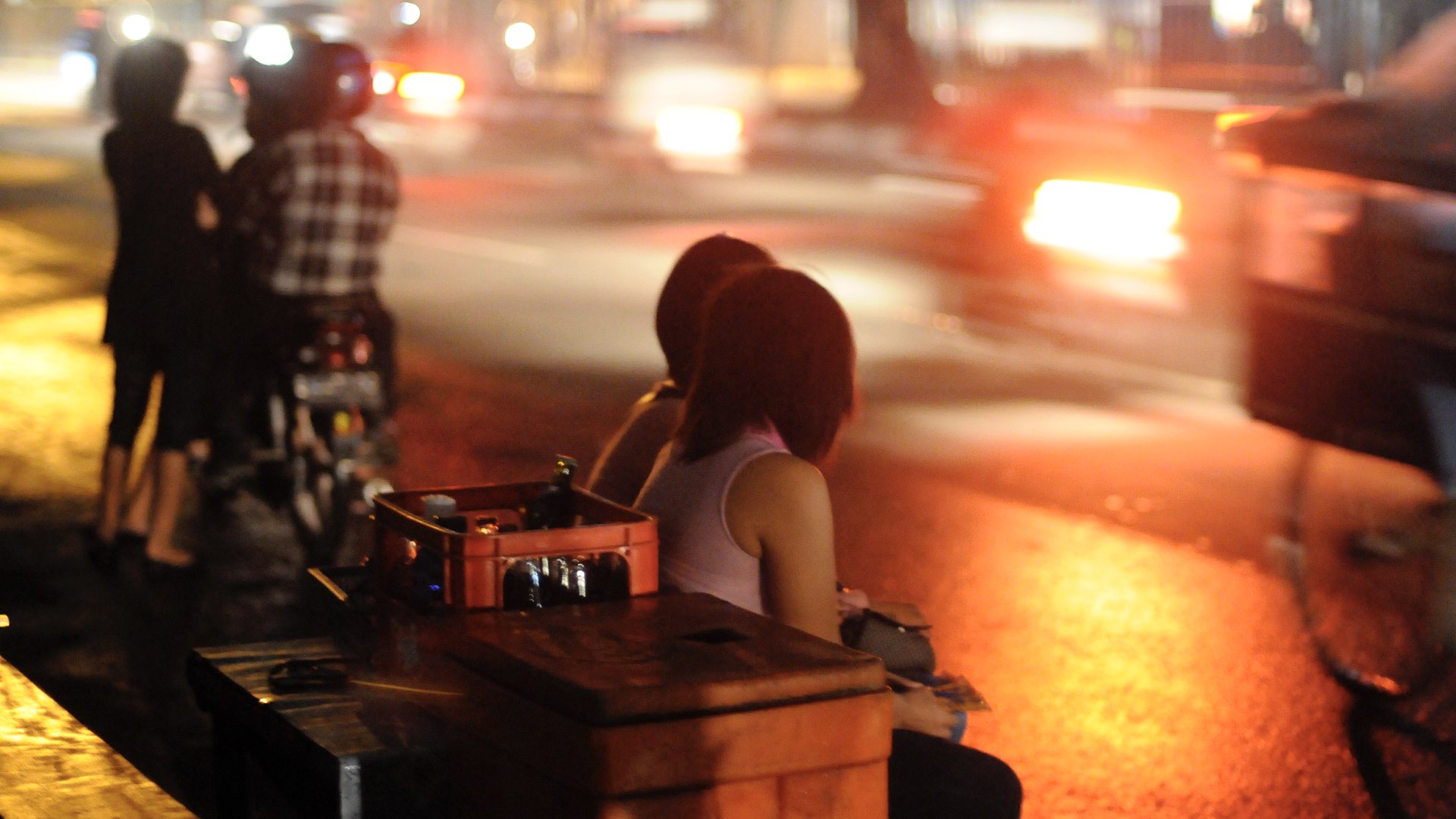
A life-saving sisterhood in Indonesia
Liana is a female sex worker living with HIV. She is the national coordinator of OPSI, a national network of sex workers in Indonesia. Together with UNFPA, OPSI is developing an innovative model for reaching female sex workers with HIV in Indonesia. During the pandemic, this innovative model has helped reach more than 60,000 female sex workers with information on HIV prevention and treatment, mental health and COVID-19.
Liana says that one of the hardest parts of being a sex worker in Indonesia, as in so many countries, is being legally invisible. “Sex work is not seen as work in Indonesia,” she says. “And in some cases sex work is criminalized. A couple of years ago the law changed and all the brothels closed. The situation is not easy for sex workers in Indonesia at the moment.”
In 2016, the government passed a law criminalizing sex work and offered small grants to encourage sex workers to return home and reskill. Liana has found that the law has only made it harder to maintain a network of sex workers and keep them safe. “The result of the closure of brothels is that sex workers are now scattered,” she says. “Some are going online, some work on the streets, and they have formed new hotspots, new places for finding clients.”
“Sex work is not seen as work in Indonesia.”
Liana points out that, because sex workers are isolated and on the margins, they are more vulnerable on a number of fronts. “The consequences are there are more cases of abuse,” she says.
Under the Joint United Nations Programme on HIV/AIDS, UNFPA is supporting HIV prevention programmes for key populations including sex workers, and forging links between sexual and reproductive health and gender-based violence services.
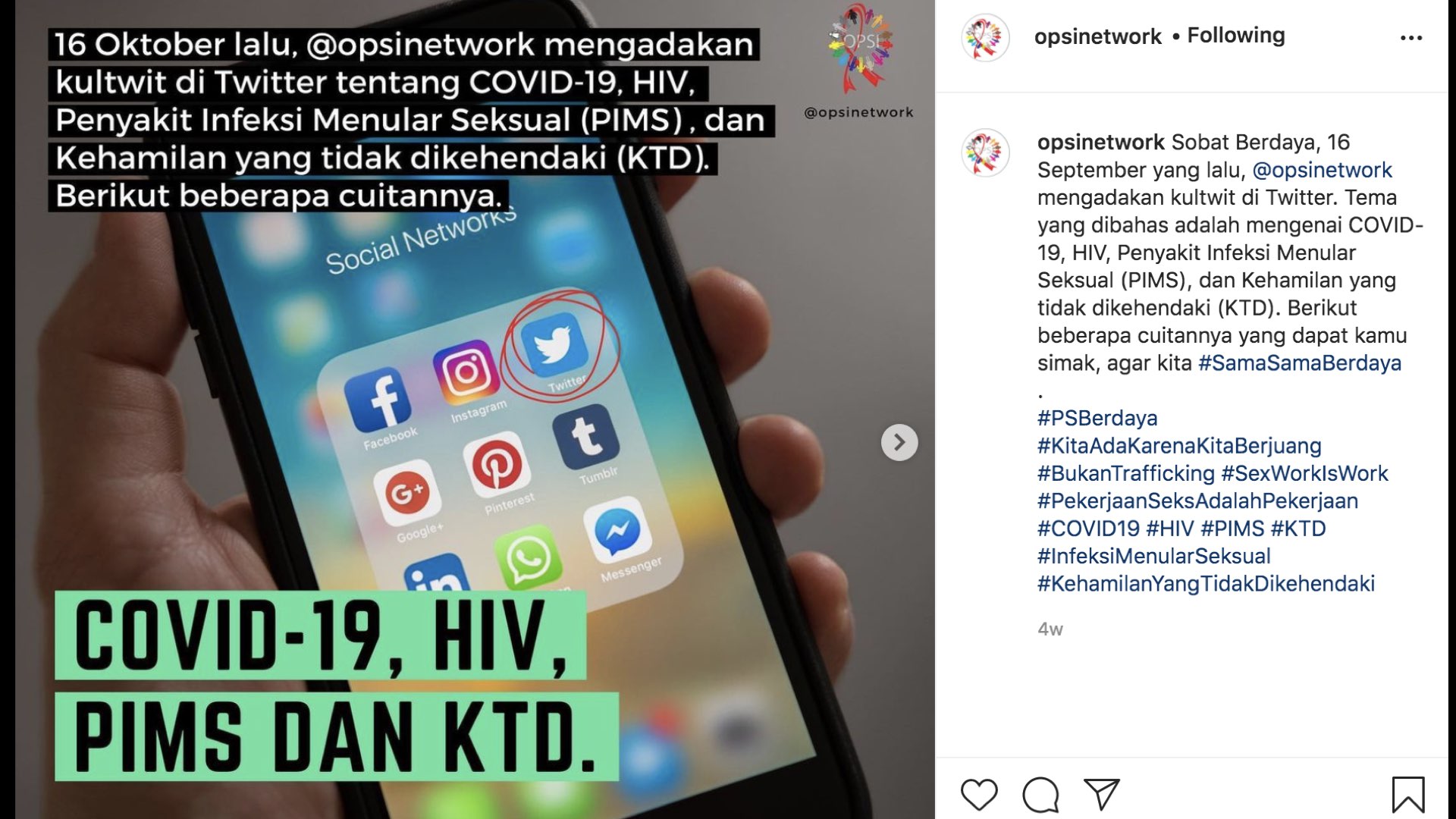
Before the COVID-19 pandemic, UNFPA was working with OPSI to develop a peer-to-peer outreach model using active and former female sex workers to reach this vulnerable group. “Only sex workers know where they are, and it’s easier for sex workers to reach their peers,” Liana explains.
“Only sex workers know where they are, and it’s easier for sex workers to reach their peers."
Liana says that the itinerant nature of the work can make it difficult to follow cases: “There is high mobility of female sex workers. They often move from place to place and when they move, the system is not always ready to keep supporting them.”
Furthermore, a lot of Lia’s peers do not have the critical papers they need to access services. “Many sex workers do not have ID cards,” she says. “These ID cards are important for accessing health services and for them to be eligible for support from the national insurance scheme.”

To ensure that no one was left to struggle on the margins, Lia and her peers developed a colour-coded community mapping system to track hotspots and help identify sex workers and help them to access support and services.
“Community alert mapping helps us see where female sex workers are working and living so they can be reached,” Liana says. “This mapping is led by the community members themselves.”
The network currently covers 88 districts and is able to provide support in communities that normal health services are unable to reach.
“Community alert mapping helps us see where female sex workers are working and living so they can be reached.”
This innovative approach of working with the community has helped in identifying and supporting people with HIV and ensuring that they are accessing antiretroviral treatment. The dynamic process of tracking cases through online networks and word of mouth has become central to adapting the project to the challenges posed by the COVID-19 pandemic.
Without safe spaces and without legal protections, the sex workers of Indonesia were already at risk before the pandemic. With COVID-19, their clients disappeared and their situation became even more acute.
With health centres overwhelmed with COVID-19 patients and outreach health services on hold, Liana worried that many sex workers would not be able to access the treatment they needed. She says that the effect of stopping treatment for HIV is devastating: “Slowly but surely, the immunity of the body decreases. People become vulnerable to opportunistic infections, which can be fatal.”
Since the COVID-19 pandemic began, OPSI has increased the level of services that it offers online. “We’ve been trained in simplified case management and to provide basic psychological first aid and psychosocial support,” Lia says. “We offer this for all sex workers in the 15 days after an HIV diagnosis. It’s important to be there to help them adjust and get them on treatment.”
During the lockdown, Lia and her peers also organized the delivery of medicine to sex workers and ensured that they were connected, safe and staying healthy.
“There were many negative assumptions at the beginning about recruiting female sex workers as leaders.”
Despite the success of OPSI in reaching especially vulnerable groups in the community, Lia says that her network has been viewed with suspicion by other non-governmental organizations (NGOs) and that she and her colleagues have faced unfair cultural stereotypes about sex workers. “There were many negative assumptions at the beginning about recruiting female sex workers as leaders,” she explains. “But OPSI invested more in communicating with the local NGOs to explain that the programme could actually contribute in a big way to their work by helping them reach new groups.”
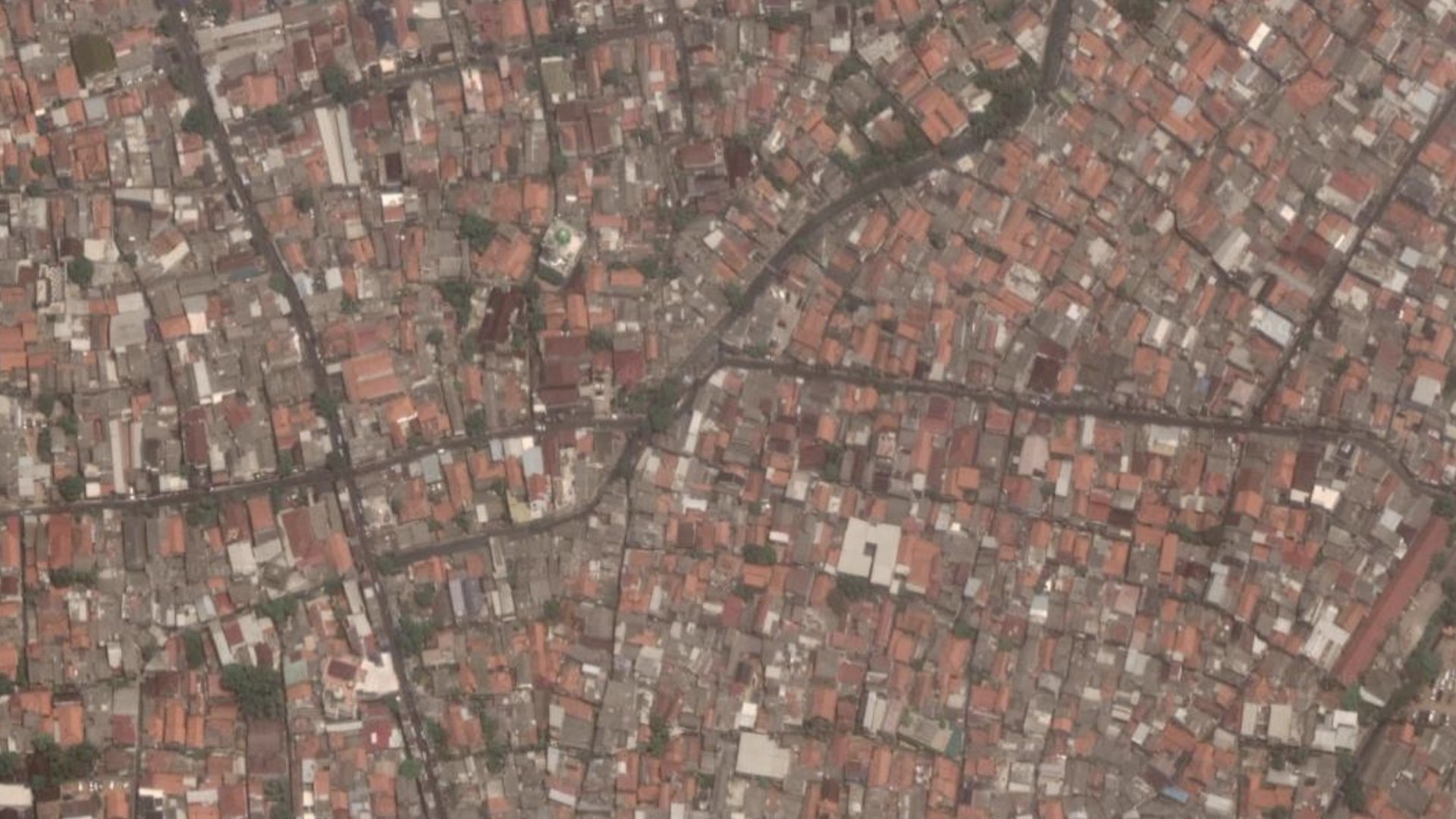
While OPSI has earned the growing respect of other NGOs and a big following within the sex worker community, Liana says that the network’s members are struggling through a very difficult time. “The number of clients is decreasing, so female sex workers can’t send money home. Most of them are supporting their extended family in their home village.” With fewer clients and reduced earnings, sex workers are unable to access cash support schemes from the government unless all their paperwork is in order.
"For those who are living with HIV, they need to go to the health facilities to take the medicines.”
Liana also says that urgent action is needed to ensure that testing and treatment can continue. “They need to continue, especially for those who are living with HIV,” she says. “They need to go to the health facilities to take the medicines.”
In addition to offering solidarity and counselling and helping female sex workers living with HIV to maintain treatment, OPSI is now expanding the free legal services that it offers sex workers. Liana says, “We’ve demonstrated that by linking with community-based organizations sex workers can benefit from support like having advice from paralegals when they are involved in violence cases.”


